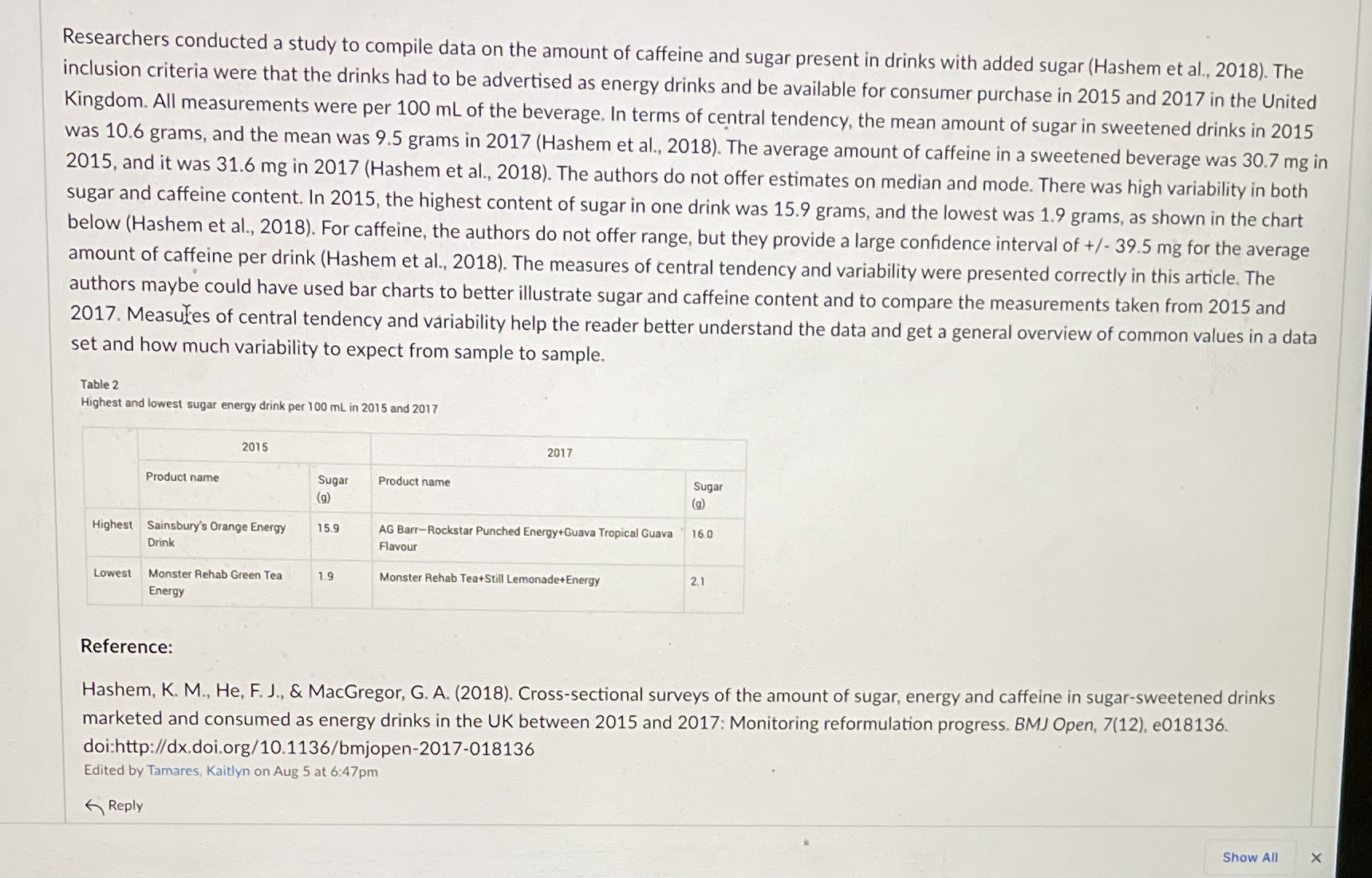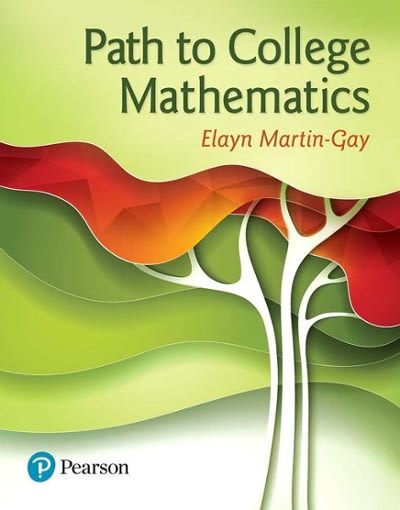Please respond this discussion post
Researchers conducted a study to compile data on the amount of caffeine and sugar present in drinks with added sugar (Hashem et al., 2018). The inclusion criteria were that the drinks had to be advertised as energy drinks and be available for consumer purchase in 2015 and 2017 in the United Kingdom. All measurements were per 100 mL of the beverage. In terms of central tendency, the mean amount of sugar in sweetened drinks in 2015 was 10.6 grams, and the mean was 9.5 grams in 2017 (Hashem et al., 2018). The average amount of caffeine in a sweetened beverage was 30.7 mg in 2015, and it was 31.6 mg in 2017 (Hashem et al., 2018). The authors do not offer estimates on median and mode. There was high variability in both sugar and caffeine content. In 2015, the highest content of sugar in one drink was 15.9 grams, and the lowest was 1.9 grams, as shown in the chart below (Hashem et al., 2018). For caffeine, the authors do not offer range, but they provide a large confidence interval of +/- 39.5 mg for the average amount of caffeine per drink (Hashem et al., 2018). The measures of central tendency and variability were presented correctly in this article. The authors maybe could have used bar charts to better illustrate sugar and caffeine content and to compare the measurements taken from 2015 and 2017. Measures of central tendency and variability help the reader better understand the data and get a general overview of common values in a data set and how much variability to expect from sample to sample. Table 2 Highest and lowest sugar energy drink per 100 mL in 2015 and 2017 2015 2017 Product name Sugar Product name Suga (g) Highest Sainsbury's Orange Energy 15.9 AG Barr-Rockstar Punched Energy+Guava Tropical Guava 16.0 Drink Flavour Lowest Monster Rehab Green Tea 1.9 Monster Rehab Tea+Still Lemonade+Energy 2.1 Energy Reference: Hashem, K. M., He, F. J., & MacGregor, G. A. (2018). Cross-sectional surveys of the amount of sugar, energy and caffeine in sugar-sweetened drinks marketed and consumed as energy drinks in the UK between 2015 and 2017: Monitoring reformulation progress. BMJ Open, 7(12), e018136. doi:http://dx.doi.org/10.1136/bmjopen-2017-018136 Edited by Tamares, Kaitlyn on Aug 5 at 6:47pm Reply Show All X







